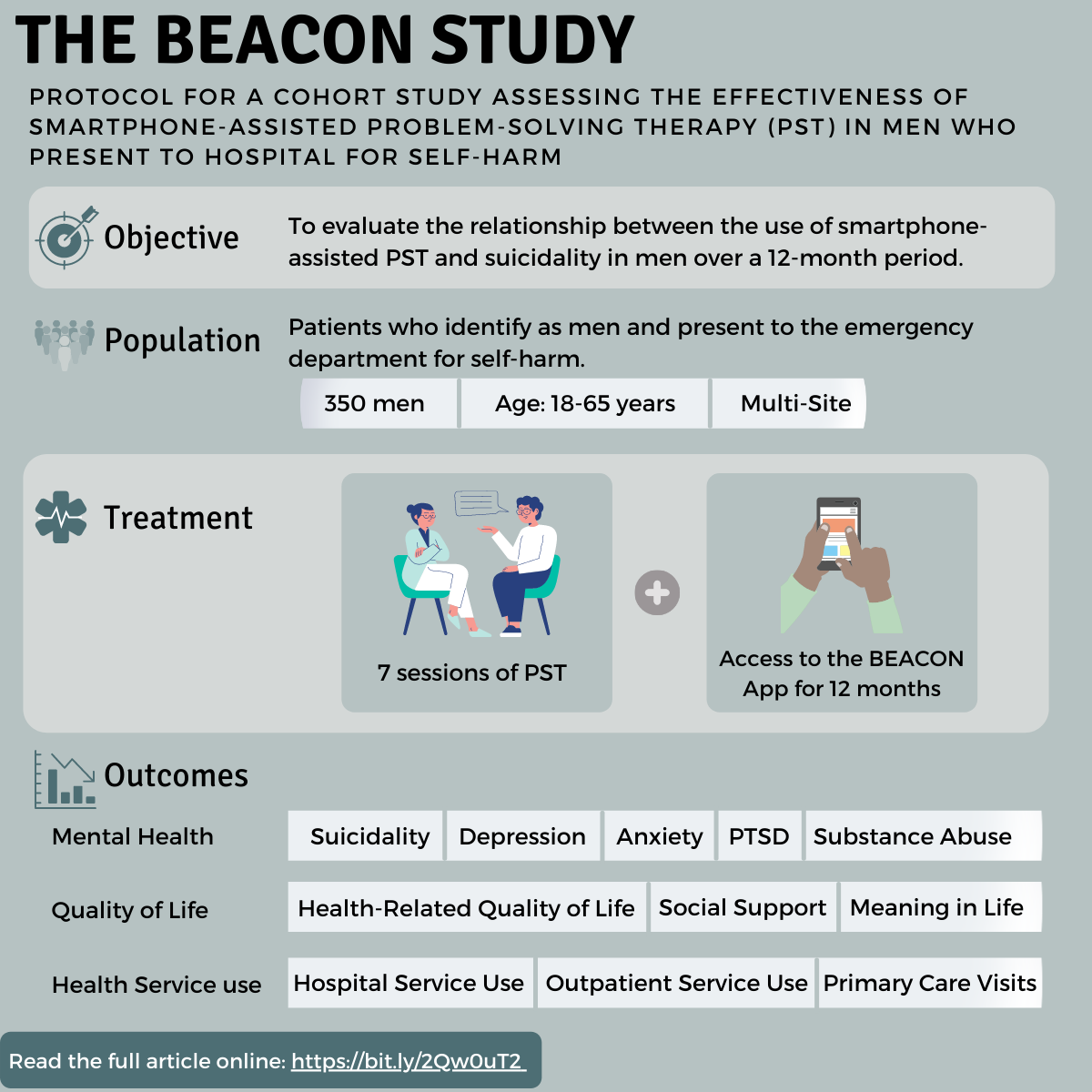The BEACON Study: Protocol for a Cohort Study as Part of an Evaluation of the Effectiveness of Smartphone-Assisted Problem-Solving Therapy in Men
By Simon Hatcher, Marnin Heisel, Oyedeji Ayonrinde, Julie K. Campbell, Ian Colman, Daniel J. Corsi, Nicole E. Edgar, Lindsay Gillett, Sidney H. Kennedy, Sophia Lakatoo Hunt, Paul Links, Sarah MacLean, Viraj Mehta, Christopher Mushquash, Alicia Raimundo, Sakina J. Rizvi, Refik Saskin, Ayal Schaffer, Alaaddin Sidahmed, Mark Sinyor, Claudio Soares, Monica Taljaard, Valerie Testa, Kednapa Thavorn, Venkatesh Thiruganasambandamoorthy and Christian Vaillancourt
Attending the emergency department for an episode of self-harm is strongly associated with death by suicide in the next year. There is evidence to suggest that men may be especially at risk, accounting for almost 2/3 of suicide deaths in Ontario.
To address this, we have developed an blended intervention that includes face-to-face problem-solving therapy as well as a smartphone app and clinician dashboard treatment package. The clinician dashboard allows a therapist to push out targeted content and resources to their patients and the smartphone application allows the patient to connect with their therapist in between sessions as well as access resources designed to manage thoughts of self-harm and suicide.
This intervention will be rolled out in emergency departments across Ontario and will explore the impact that it has on mental health outcomes (like self-harm, depression, PTSD, and anxiety), quality of life, problem-solving skills, and healthcare costs.
To read this article in full, please visit: https://doi.org/10.1186/s13063-020-04424-w.
